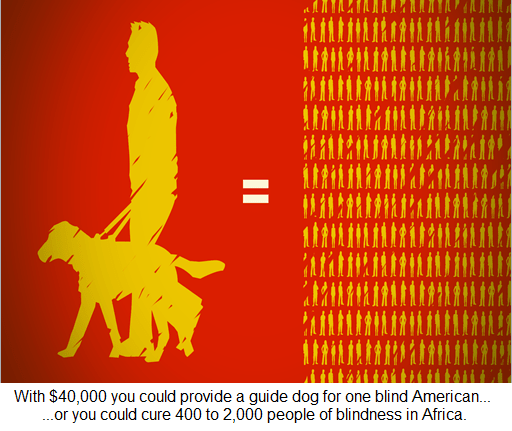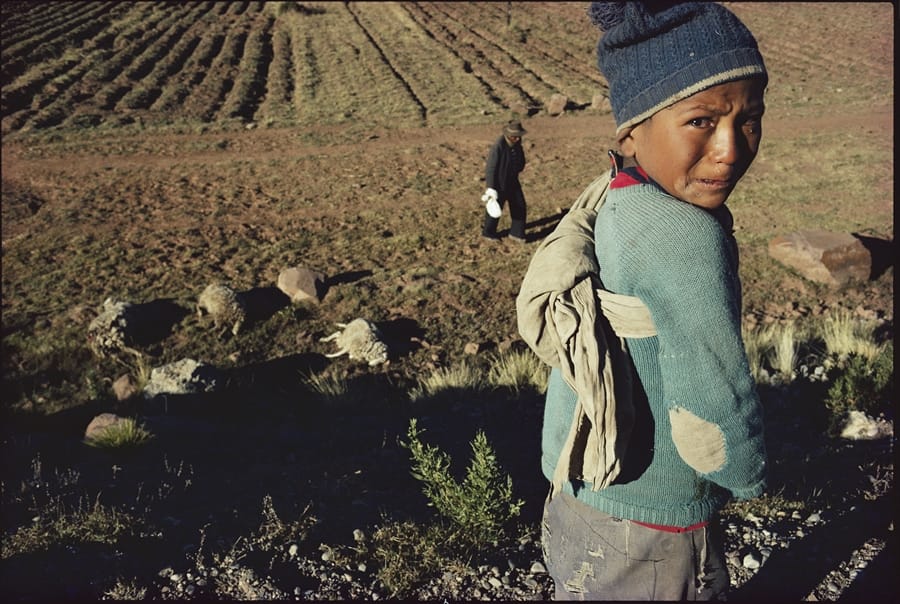“Surely you don’t just want to make a difference; you want to make the most difference.”
This has become something of a catchphrase for 80,000 Hours Founder Will MacAskill (at least, I like to tease him that it is). I heard The Humane League Founder Nick Cooney say something similar in a recent talk: “We need to ask ourselves, not ‘Am I doing good?’, but ‘Am I doing the most good?’”. Even my partner’s 16-year-old brother has picked up on this central tenet of effective altruism, saying at dinner one day: “An important thing about effective altruism is that it doesn’t just ask, ‘Is that important?’ it asks, ‘Is that more important than everything else?’” Indeed, effective altruists, recognizing the equal value of every person, are not content to merely save one life. If I have money to spend on luxuries when I could be alleviating a person’s suffering, then I think that it’s just as important that I help that person, whether I’ve helped 0, 1 or 1000 people already. If this sounds too overwhelming in practice, then you might like to read my article on dealing with guilt as an effective altruist, but it is also important to remember that effective altruism is not just about giving more, it’s also about giving better. Charity A might make a difference with my donation, but Charity B might make a bigger difference.
But perhaps it is not worth our time trying to figure out which charities make the most difference, because the best charity I could find would not be much more effective than the one I’m considering right now. I would argue that it is very important to invest some time into finding more effective charities, because the difference in cost-effectiveness between different charities is so huge that many lives could depend on your choice of where to donate!
 Take charities that help blind people, for example. As we hear in Peter Singer’s TED talk, “It costs about $40,000 to train a guide dog and train the recipient…It costs somewhere between $20 and $50 to cure a blind person in a developing country if they have trachoma…You could provide one guide dog for one blind American, or you could cure between 400 and 2,000 people of blindness.” (For more examples, check out these articles comparing donating to the Against Malaria Foundation with donating to an opera house, an art museum, an Ivy League university and education programs in the U.S.)
Take charities that help blind people, for example. As we hear in Peter Singer’s TED talk, “It costs about $40,000 to train a guide dog and train the recipient…It costs somewhere between $20 and $50 to cure a blind person in a developing country if they have trachoma…You could provide one guide dog for one blind American, or you could cure between 400 and 2,000 people of blindness.” (For more examples, check out these articles comparing donating to the Against Malaria Foundation with donating to an opera house, an art museum, an Ivy League university and education programs in the U.S.)
If you are still not convinced that making the most difference with your donations is a very important thing to do, I would encourage you to read Dr Toby Ord’s article, “The Moral Imperative Towards Cost-effectiveness”, in which he addresses various objections.
An interesting consequence of focusing on making the most difference is that one should often give all of one’s donations to one charity. At the end of the day, charity is about helping individuals, and helping more charities is actually not going to enable you to help more individuals if the alternative is to give all your help to the most effective charity you can find. Unlike with our personal financial portfolios or leisure time, when it comes to charitable giving, we should rarely seek to diversify. The difference here is that the problems charities tackle are so large that you shouldn’t feel like you’ve “wrapped up” one problem and are ready to move on to the next. This matter of focusing your donations can be a bit tricky to get your head around, but economics professor Steven E. Landsburg makes an excellent start on presenting the idea in “Giving Your All”.
(But if you do read “Giving Your All”, please ignore the comments about “delusions of grandeur” and “puffing yourself up” being why people diversify their charitable giving; I think that it’s simply because so few people have heard the reasons for focusing their donations clearly explained. I hope that I have done a good job of it in this article, but I would be happy to discuss further in the comments below.)
For the first post in our Making a Difference 101 series, click here.



